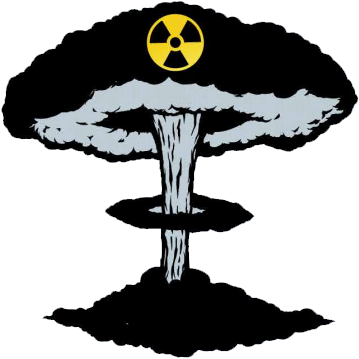Improvised Nuclear Device

An Improvised Nuclear Device (IND) is a type of nuclear weapon. When an IND explodes, it gives off four types of energy: a blast wave, intense light, heat, and adiation. The bomb dropped on Hiroshima, Japan, at the end of World War II is an example of an IND.
When an IND explodes, a large fireball is created. Everything inside of this fireball vaporizes and is carried upward. This creates a mushroom-shaped cloud. The material in the cloud cools into dust-like particles and drops back to the earth as fallout. Fallout can be carried by the wind and can end up miles from the site of the explosion. Fallout is radioactive and can contaminate anything it lands on.

An IND would cause great destruction, death, and injury and have a wide area of impact. People close to the blast site could experience:
- Injury or death (from the blast wave)
- Moderate to severe burns (from heat and fires)
- Blindness (from the intense light)
- Radiation sickness, also known as acute radiation syndrome or ARS (caused by the radiation released)
People farther away from the blast, but in the path of fallout, could experience health effects from:
- Fallout on the outside of the body or clothes (external contamination) or on the inside of the body
(internal contamination) - Radiation sickness
- Contaminated food and water sources


